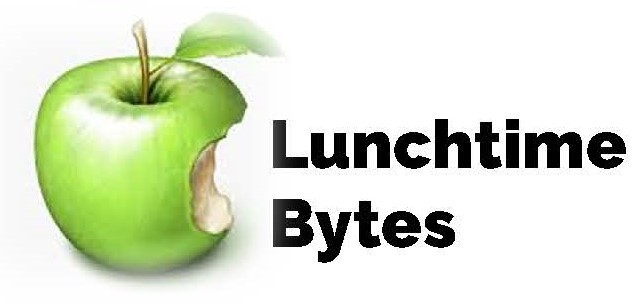 |
Kia ora, The last week of Term 1! I know for many of you this has been very challenging with Cyclone Gabrielle interrupting what was supposed to be a very “vanilla” year! Before you go off on your holiday break please make sure you have re- registered for 2023. From the end of April we will be switching to the 2023 so if you are still keen to be a member please complete your regional form here. Scroll down to find your region. Those who are not on the 2023 database will no longer receive newsletters, emails and access to the member section of the website. If you are no longer keen to be a member please let Dane know—support@catenz.org All the registration links are live for the Kaiārahi workshops that will run throughout the country over Term 2 and 3. We are finalising venues and will let you know as soon as these have been confirmed. We would love to see more case studies, check out the CATE Good Practice template and some examples of initiatives from different schools. This is how we show the MOE our value and the amazing work we do. I have had information from TEC around Fees Free, let me know if you think there is value in a webinar. Have a fantastic Easter and autumn break. Ngā mihi nui,  |
Curating Good Practice Insights can showcase successful approaches that have been used in other contexts. We do not have to revent the wheel when we can learn from the experiences and successes of others. Case studies are an important tool for promoting good practice in career education to the MOE by providing practical examples, highlighting what works, and engaging and motivating learners. Thank you to Jo Shaw who has championed this initiative and to Marie Donaldson to be the first off the block! Here is a template we would like you to use, please complete and send through to me and i will get these put up onto the website. I will also showcase new contributors in the Kaiārahi newsletters. Currently in the shared drive:  |
 |
Electrical/Scaffolding/Plumbing Gas Fitting and Drainlaying Unit Standards for Gateway Teachers manual and Gateway Resources To enrol a student in the Te Pūkenga Gateway programme select the Te Pūkenga Gateway package required and complete the Enrolment and Resource Form. The enrolment form must be signed by both the school Gateway coordinator and Gateway student. The student’s full legal name is required on the form. Scan and email the completed form to registrations@earnlearn-tepukenga.ac.nz  |
 |
Kaiārahi Workshop 2023 “Joining the DOTS”. Programme includes:
Please save the date.
 |
 |
Lunchtime Bytes
ZEIL, is reinventing the CV to get more rangatahi job-ready. Their free step-by-step CV Builder offers an intuitive new way to create, update and export your CV—on your phone, anywhere. This new take on a CV also incorporates tailored journeys and prompts based on age and stage, plus personalised video introductions - appealing to a younger, digital-native audience. Users can also quickly control and customise their CV based on personal attributes they might wish to show or hide when applying for different jobs. Committed to getting every Kiwi leaving school with a professional-quality CV built, ZEIL are on a mission to arm young job-seekers with the confidence to take the first step, gain financial independence and ultimately flourish.
 |
 |
Information on Fees Free Targeted Training and Apprenticeship Fund now ended School leavers looking for financial assistance for their tertiary study or education from 2023 should check their eligibility for Fees Free at FeesFree.govt.nz. What is Fees Free? The Fees Free Policy is administered by the Tertiary Education Commission (TEC). Where can I find information about Fees Free? The Fees Free Quick Guide is a two-page resource available on the TEC website for you to use and give to your students. This provides basic information on Fees Free eligibility and entitlement and directs learners to the Fees Free website to check their eligibility. The TEC Customer Contact Group is available on weekdays to answer your Fees Free questions via phone, email, or web chat. How do learners find out if they are eligible for Fees Free? Yes: The learner is eligible for Fees Free. They do not need to do anything else—when they enrol, the TEC will let their tertiary organisation know that they are eligible, and will work with the organisation to cover the learner’s compulsory course or training fees. Maybe: The TEC does not currently have enough information on record to confirm the learner’s eligibility status automatically. The learner needs to follow the steps on the ‘Maybe’ result page to check the eligibility criteria, and if they are eligible, submit a statutory declaration to the TEC to confirm their eligibility. From there, the TEC will change the learner’s status to ‘Yes’ and will work with their tertiary education organisation to cover the learner’s compulsory course or training fees. Learners are instructed to check the criteria and (if applicable) complete the statutory declaration themselves, to ensure what they are declaring is accurate. For assistance understanding the eligibility criteria or process, learners can contact the TEC by phone, email, or web chat. What courses or programmes are eligible? Can a learner check their eligibility for 2024 now? What if a learner wants to start tertiary education while still in school?Learners who are eligible for Fees Free may use their Fees Free entitlement on tertiary education they undertake while still in school, if the tertiary study is undertaken separate to their secondary schooling. This means that Fees Free will pay the fees related to these extra-curricular courses. Otherwise, courses or programmes a learner participates in through their school (Gateway, STAR, or other secondary-tertiary programmes) will not use a learner’s Fees Free entitlement or impact their future eligibility to Fees Free. The tertiary education organisation the learner is enrolled with will let the TEC know that the course is part of a secondary tertiary programme when the learner enrols.  |